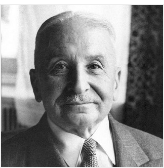Robinhood's New Normal and Price Discovery
A handyman, doing work on our house offered,”I need to buy some stocks, so I can make some money.” My surprise kept me from responding. “I just don’t know anything about it,” he admitted. I remained quiet.
Shares surged again today keeping the new day trading class happy as they remain oblivious to abysmal economic numbers while the nation struggles with Covid-19. Nasdaq.com reports, “market tops tend to form when investors are wildly confident, bullish, and greedy, while bottoms are typically carved out when investors are despairing and hopeless.”
Scott Nazareth, a 29-year-old day trader from Toronto, told Bloomberg, “I kind of make fun of some of these investors,” Nazareth said of Warren Buffett. “They just have a hard time understanding the new normal, the new business models.”
Ah yes, another new normal. “Speculation in the capitalist system performs a function which must be performed in any economic system however organized: it provides for the adjustment of supply and demand over time and space,” wrote Ludwig von Mises in his book “Socialism.”
Ajay Shah writes,
Speculators observe new information, form a fresh sense of risk and return, and discover that the present valuation on the market is out of date. Speculators then actually risk their capital in taking positions on the market. If a speculator thinks that new information justifies a lower valuation, he short sells the security, and vice-versa. These activities serve to feed this new information into market prices. Hence, they are the heart of financial markets. Speculators do price discovery, and without speculators, a financial market does not exist.
The belief is there is a pile of cash waiting to enter the market and “a growing belief that the Fed will simply throw trillions of dollars at the economy, flat-out preventing stocks from crashing … we’re at risk of even more-seasoned investors getting lured into questionable stocks, which historically, doesn’t end well,” nasdaq.com explains.
Margin debt totaled $337 billion at the end of the first quarter. But, that’s not the only debt going into stocks in attempts to get rich. The New York Times tells the story of Navy medic Richard Dobatse who initially funded his Robinhood account with $15,000 from credit card advances.
Just like buying stuff on Amazon, Dobaste could trade with one click on Robinhood. The platform offers “easy access to complex investment products, and features like falling confetti and emoji-filled phone notifications that made it feel like a game,” writes Nathaniel Popper for the NYT.
After blowing through his initial $15,000 Mr. Dobatse took two $30,000 home equity loans “so he could buy and sell more speculative stocks and options, hoping to pay off his debts.”
Then the market smiled on him. The value of his account soared to over $1 million. All was well, until it wasn’t. As of early July his account balance stood at less than $7,000. As his fortune shrunk, he lost sleep and his appetite.
Mr. Popper reports, “More than at any other retail brokerage firm, Robinhood’s users trade the riskiest products and at the fastest pace, according to an analysis of new filings from nine brokerage firms by the research firm Alphacution for The New York Times.”
Frequent trading in stocks and especially options is the road to ruin for retail investors according to studies. The average Robinhood customer is 31 and unsophisticated in the ways of Wall Street.
Nebraskan 20 year old Alex Kearns committed suicide when he believed he had lost $730,000. “There was no intention to be assigned this much and take this much risk,” Mr. Kearns wrote in his suicide note, which a family member posted on Twitter.
At Robinhood HQ in Menlo Park, California, bulletproof glass has been installed at the front entrance, which, in addition to being prudent, is a reminder of July 1999, when Mark Barton, a 44-year-old former chemist, and daytrader entered the offices of All-Tech Investment disturbed about recent losses. After killing his wife and two children at home, he opened fire at All-Tech, killing 9 and wounding a dozen at the offices located in tony Buckhead, Georgia. After saying "I hope this doesn't ruin your trading day," Barton took his own life.
Mike “Mish” Shedlock told Ash Bennington on Real Vision,”The Fed wants people to speculate in stocks. And it will work until it doesn’t.”
Shedlock believes the millennials and late comers to the market will get hurt when the market crashes 50 to 80 percent.
Mises believed that speculators provided a vital function in the capitalist economy. But, I doubt he had the Robinhood crowd in mind. He presciently wrote, “it is precisely in the stock market boom that the serious threat of a crisis lies hidden.”
The crisis will come out of hiding soon enough.







